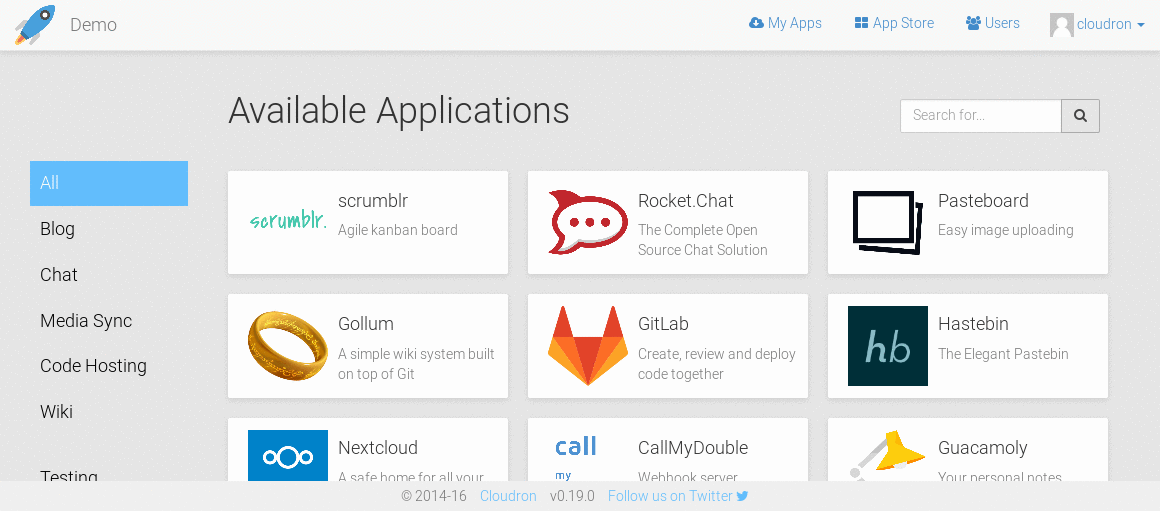
Cloudron, a platform for self-hosting web apps like WordPress, solves many of the problems associated with self-hosting. The platform is now open source and available on GitLab under the Affero General Public License.
Small businesses use apps like WordPress, GitLab, Rocket.Chat, and others as a way to control their own data and customize their sites. But according to Cloudron, self-hosting is an “onerous task,” so business owners end up compromising with SaaS products.
Some of the problems that self-hosters face include the installation and configuration processes. Most apps require a database and e-mail setup, and they need to be updated. With Cloudron, users can automatically provision database/e-mail setup and back up each app individually.
Other challenges that self-hosters deal with are app installation, DNS setup, SSL setup, alerts, database configuration, firewalls, monitoring, and more. The goal, according to Cloudron, is to keep human intervention as low as possible.
With Cloudron, it is easy to give a subdomain and install an app, and a developer can use it immediately without having to run through setup wizards. Apps can easily be built using any framework or language that the developer chooses. In order for them to use whatever language they want, Cloudron implemented an app packaging mechanism based on Docker. Also, it has a complete REST API, which allows developers to automate aspects of Cloudron.
While Cloudron wants to make self-hosting accessible to developers, it also wants to make it accessible to everyone, including external users who use the apps. Users and developers can find the code hosted on GitHub and talk to community members directly at chat.cloudron.io.
Top 5 projects trending on GitHub this week
#1: Itsy Bitsy Data Structures: “All the things you didn’t know you wanted to know about data structures.”
#2. Awesome React Components: A catalog of React components/libraries.
#3. In-View.js: Get notified when a DOM element enters or exits the viewport.
#4. srez: “Image super-resolution through deep learning.”
#5. PaddlePaddle: Short for PArallel Distributed Deep LEarning.”






